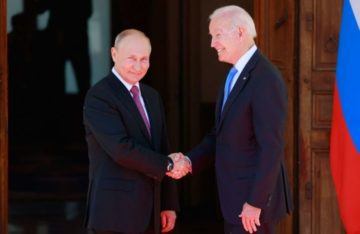Anatol Lieven in Spectator World:
 To understand the strength of Putin’s position when it comes to defending Russian international interests (as opposed to domestic interests, where his deeply corrupt set-up is becoming increasingly unpopular), it is vital to understand that while Putin is obviously much more personally powerful than Western leaders, he is still the leader of the Russian foreign and security establishment — or as former Obama adviser Ben Rhodes dubbed the US equivalent, a blob.
To understand the strength of Putin’s position when it comes to defending Russian international interests (as opposed to domestic interests, where his deeply corrupt set-up is becoming increasingly unpopular), it is vital to understand that while Putin is obviously much more personally powerful than Western leaders, he is still the leader of the Russian foreign and security establishment — or as former Obama adviser Ben Rhodes dubbed the US equivalent, a blob.
Every major country has such a blob, which conducts national foreign and security policy on the basis of certain relatively fixed and enduring beliefs (often virtually dogmas) national interests and their country’s place in the world. These beliefs may seem strange and irrational to outsiders (including some of their own fellow citizens), but generally stem from deeply-held sentiments of national identity and historical experience. It can be a form of patriotism.
Russia’s blob is determined to maintain Russia’s role as a great power on the world stage (which may lead Russia into an even more dangerous dependence on China); to exclude potentially hostile foreign alliances over Ukraine, Belarus and Georgia, and to defend the minorities in those countries that look to Russia for support.
More here.
